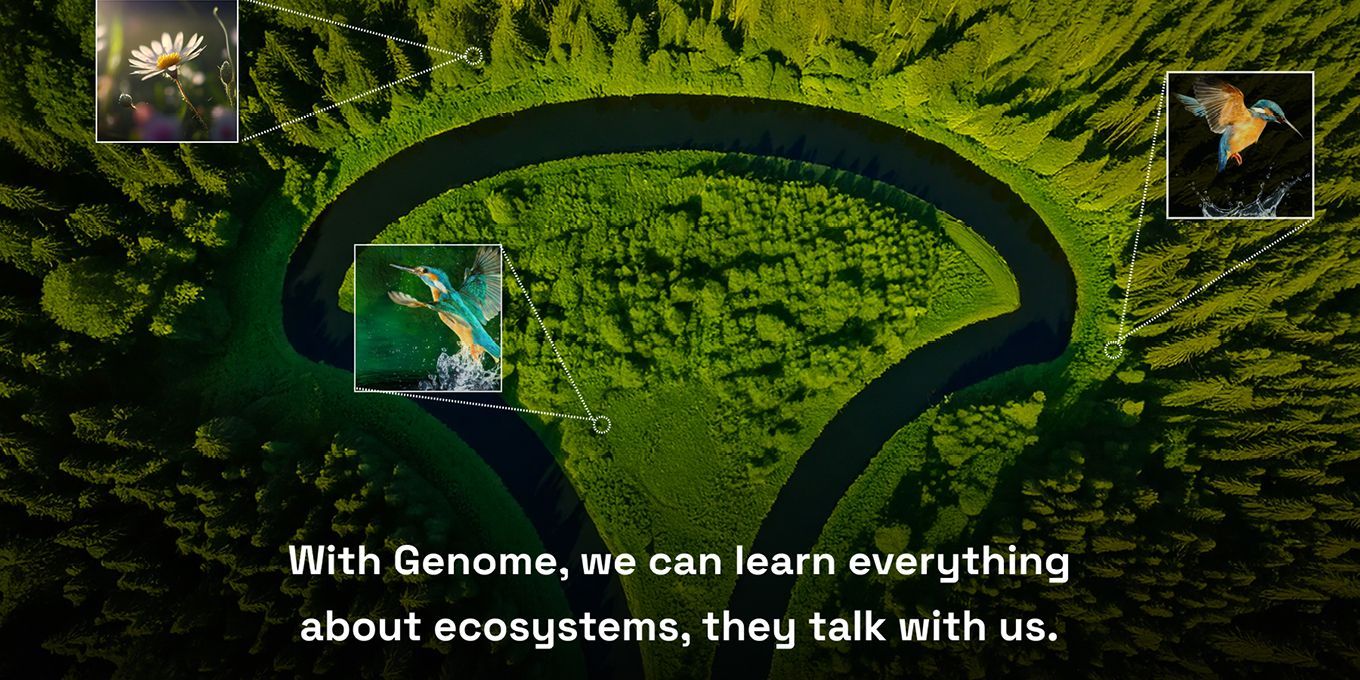Genome

Rediscovering the bond with nature
As part of the Envisioning workshop in collaboration with Samsung, students of the Master in Product Design and Interaction Design – Alessandro Roasio, Erkut Ekim, Junyoung Oh and Zeynep Alkaya – developed Genome, an innovative system that enables users to interact with ecosystems of all sizes and forms.
The value and potential of ecosystems are often overlooked. Despite being part of nature, humans tend to take it for granted, and environmental issues can feel distant, weakening the connection with the natural world. Genome AI aims to restore this vital bond by facilitating a rediscovery of the meaning and importance of ecosystems. The system allows engagement not only with the organisms within ecosystems but also with the environments they inhabit.

Rediscovering the bond with nature
As part of the Envisioning workshop in collaboration with Samsung, students of the Master in Product Design and Interaction Design – Alessandro Roasio, Erkut Ekim, Junyoung Oh and Zeynep Alkaya – developed Genome, an innovative system that enables users to interact with ecosystems of all sizes and forms.
The value and potential of ecosystems are often overlooked. Despite being part of nature, humans tend to take it for granted, and environmental issues can feel distant, weakening the connection with the natural world. Genome AI aims to restore this vital bond by facilitating a rediscovery of the meaning and importance of ecosystems. The system allows engagement not only with the organisms within ecosystems but also with the environments they inhabit.
Project Leader | Mentor
Mario Crippa
Project Authors
Alessandro Roasio
Erkut Ekim
Junyoung Oh
Zeynep Alkaya



Through advanced hardware and intuitive interfaces, Genome AI creates a seamless connection between people and nature. At its core are Genome Grids—devices embedded in elements like trees, acting as living sensors that collect environmental data and record ecological histories. These grids form a network that continuously gathers real-time information. This data powers interactive experiences where users can explore ecosystems from the perspective of the organisms themselves. Poetic and emotionally engaging interfaces enhance the interaction, offering a more immersive and reflective connection to the natural world.
Genome AI offers broad potential across many fields. Students and teachers can explore new educational methods in science and ecology. Journalists can report on environmental challenges with real-time data support. Researchers can gather valuable insights into biodiversity and climate change. Nature enthusiasts can develop deeper, ongoing relationships with ecosystems beyond occasional visits.
By combining technology, real-time data, and emotional design, Genome AI redefines engagement with nature, opening new possibilities for learning, research, and meaningful environmental connection.
















